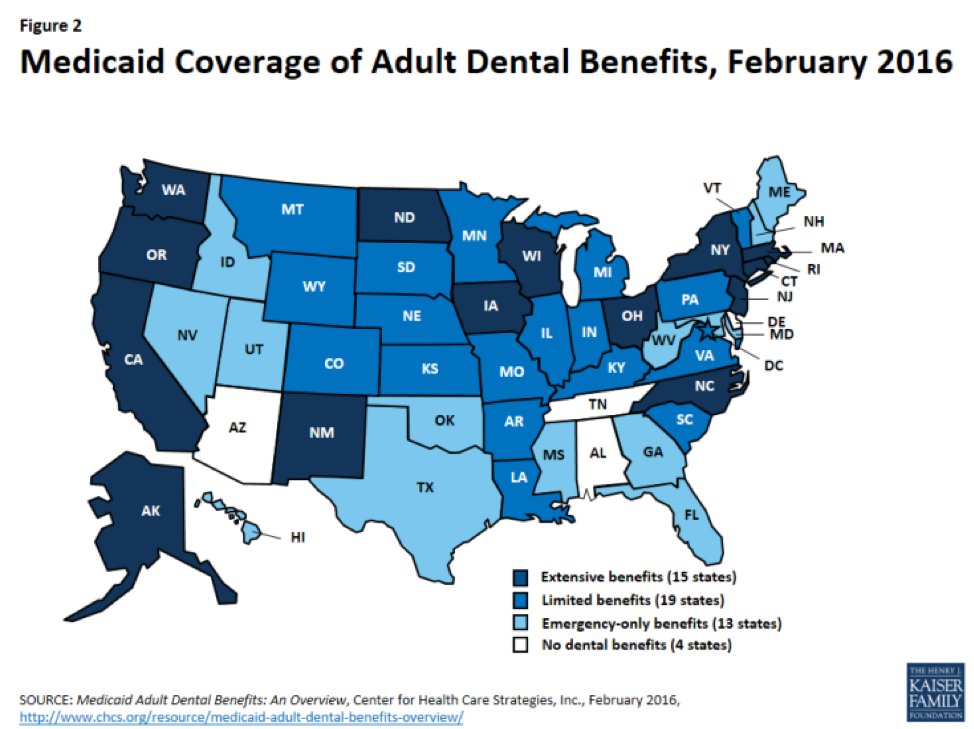Kentucky Governor Matt Bevin (R) announced on Monday that he would cut vision and dental benefits for approximately 500,000 Medicaid recipients in the state. His decision to terminate the benefits follows a ruling last week by a federal court against the state’s proposed Medicaid waiver, which would have imposed work requirements and monthly premiums on many Medicaid recipients and was approved by the Trump administration back in January.
The cuts could be temporary: The court didn’t determine the waiver was necessarily in violation of the law, just that it would need to be further reviewed by the Department of Health and Human Services before it could be implemented. (Bevin had pushed for the law to go into effect on July 1st.)
Bevin’s administration said the decision was necessary in light of the court’s ruling. “This is an unfortunate consequence of the judge’s ruling,” a cabinet official said. “Once we ultimately prevail in this legal challenge … then beneficiaries will have access to these optional services.”
But there’s ample reason to suggest Bevin’s move may affect more than just recipients’ teeth and vision.
Across the country, adult Medicaid recipients’ access to vision and dental benefits varies widely. (Medicare provides no dental benefits.) According to the Kaiser Family Foundation, in 2016, 15 states provided “extensive” adult dental benefits, 19 states provided “limited dental benefits,” 13 states provided benefits for only pain relief and emergencies, and four states provided no dental benefits to Medicaid recipients. The map below, from the Kaiser Family Foundation, illustrates this variance:

For Medicaid recipients with dental and vision issues, this lack of coverage raises real health risks. Dental disease, especially, which can be prevented and treated with regular access to a dentist, is associated with an increased risk for a range of serious (and expensive) maladies, including cancer, pre-term birth, heart disease, and stroke.
Dental health also has profound effects on quality of life, overall well-being, and economic security. A surgeon general’s report details the myriad ways dental disease can affect people’s lives: People with dental disease may struggle to eat a healthy diet; they may not sleep well; they may suffer from chronic, severe pain that makes it hard for them to work; they may avoid social situations and face ridicule or discrimination in some settings.
“Among persons over 18 years old in North York, Ontario, 7 percent reported limiting conversation with others because of oral problems in the prior year, 15 percent reported that they had avoided laughing or smiling because of oral problems, and 19 percent reported being embarrassed at least sometimes by the appearance or health of their teeth or mouth,” the report concluded.
Economists have also found evidence that people with observable dental problems may face hiring discrimination. In a randomized controlled trial, hiring managers shown pictures of people with “ideal” and “non-ideal” smiles rated those with “ideal” smiles as more intelligent and likelier to be hired. Likewise, another paper found that women exposed to fluoridated water (which helps prevent cavities) exhibited higher earnings than those not exposed.
It’s unclear if Bevin’s move today will stand—Democrats in the state believe it’s illegal and have vowed to fight to bring back both dental and vision coverage for Medicaid recipients—but for Medicaid recipients in Kentucky, more than just their teeth are at stake.





